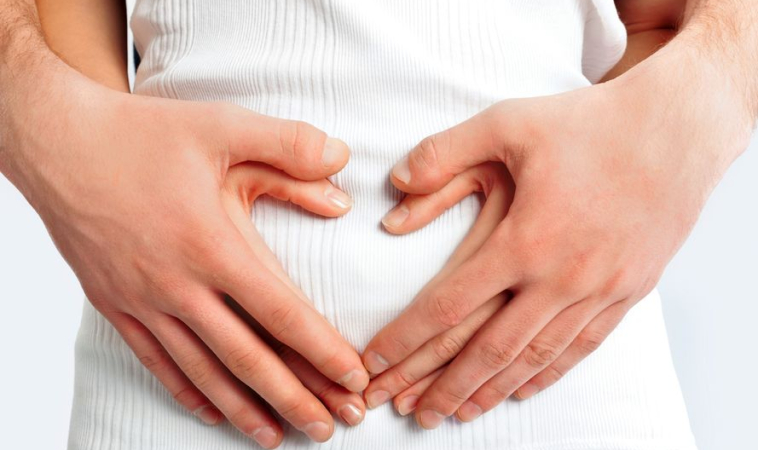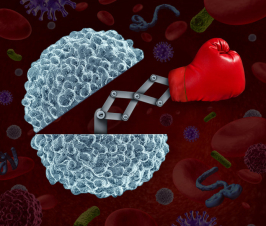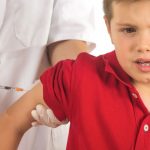Thinking of Conceiving?
 Did you know that it takes about 100 days for an egg to mature? During this time of development and maturation, a woman’s follicles are extremely vulnerable to DNA damage from exposure to toxins, systemic or chronic inflammation, and nutrient deficiencies. This means that for many women who are ready to, or are thinking of conceiving in the not-so-far future, the health of their egg(s), before they are released during ovulation, can be greatly improved. This could increase the odds of a viable and healthy egg, and therefore pregnancy.
Did you know that it takes about 100 days for an egg to mature? During this time of development and maturation, a woman’s follicles are extremely vulnerable to DNA damage from exposure to toxins, systemic or chronic inflammation, and nutrient deficiencies. This means that for many women who are ready to, or are thinking of conceiving in the not-so-far future, the health of their egg(s), before they are released during ovulation, can be greatly improved. This could increase the odds of a viable and healthy egg, and therefore pregnancy.
Sperm are also vulnerable to damage during their own development, which takes approximately 116 days. Although we place a lot of importance on women for fertility, sperm health, measured by proper morphology (shape), and motility (the ability to move and swim properly), directly relates to male health.
Therefore, a healthy pregnancy starts before conception and needs to include both partners. The health of a mother who nourishes a fetus is critical, but so is the health of the partner whose sperm, and therefore DNA, that will be incorporated into making an embryo.
The point isn’t to scare couples, but to empower them. There are many things that you can do for your health that will affect that of your eggs and sperm.
1) Start Taking a High-Quality Prenatal Vitamin and Vitamin D
There are multiple nutrients and vitamins that are essential for reproductive health, including several B vitamins, vitamin D, and folic acid. Speak to your naturopathic doctor for recommendations. Not all prenatal multivitamins are made equally. There are many products available that contain cheaper, synthetic forms of vitamins and as well as formulas that include multiple fillers and artificial food dyes.
Vitamin D is a major modulator of steroidal sex hormones. Now, in winter, there are many populations and areas of North America were people are deficient in vitamin D. Having optimal levels can lead to better odds of embryo implantation and clinical pregnancy. This is especially important in endometriosis and any women who has experienced recurring pregnancy loss.1
2) Understand Your Cycles, and Track Your Ovulation
Using tools like Fertility Awareness Methods can help identify your fertile window. While textbooks will say that a women should ovulate on day 14 of her cycle, there are many women who actually ovulate sooner or later than that. And therefore, if you’re only engaging in intercourse around day 14, you might be completely missing your fertile window.
Be mindful and track your cervical fluid and discharge quality. It can also be helpful to track your basal body temperature each morning to find out when you’re ovulating.
3) Eat Organic when Possible and Eat a Variety of Fruits and Vegetables
Nutrition is key! Consuming nutrients via a healthy diet, and a prenatal vitamin, plays a significant role overall health. The focus should be on including more vegetables and 1 or 2 servings of fruit per day. Whole, complex carbohydrates are also important for hormone regulation and digestion (elimination).
High-quality protein and healthy fat consumption is also essential. Fast food, fried foods, refined sugars and sweeteners such as corn-syrup should be avoided. The goal is to protect your reproductive cells, while providing the building blocks and co-factors the body needs to run properly and efficiently. We can influence this by promoting anti-inflammatory pathways and in providing antioxidants to scavenge the free radicals that can cause DNA fragmentation.
4) Avoid Alcohol
One study showed that women consuming 25g of alcohol (about one 8oz glass of wine) daily, had a decrease in embryo quality. 70% of the embryos analyzed from women consuming alcoholic beverages regularly showed deviations in the degree of DNA fragmentation (10-25%), symmetry and division pace.2
Of the embryos analyzed, only 15% of those from women who consumed alcohol were classified as “Class A” embryos, meaning they had the highest reproductive potential. By comparison, those women who did not consume alcohol, 42% of the embryos were identified as “Class A”.2
Alcohol consumption can negatively impact male reproduction as well. Alcohol has been shown to affect sperm morphology and motility (their shape and ability to move), and can lead to low testosterone levels.3
Limiting or eliminating alcohol consumption may lead to the production of higher quality embryos, and may increase the odds of success when using advanced reproductive techniques (ART) such as in-vitro fertilization (IVF).2
5) Avoid Exposure to Household and Environmental Toxins, and Improve Your Body’s Ability to Detoxify and Eliminate Waste
Detoxification pathways in the liver are metabolically demanding. This means that nutrients from diet and supplements are used in multiple reactions in our cells. One report from a study called “Toxic Nation: A report on pollution in Canadians” revealed that human volunteers had measurable levels of 41 different carcinogens, 27 hormone disruptors, 21 respiratory toxins, and 52 reproductive and developmental toxins.4 This included organophosphate insecticides, organochlorine pesticides, and volatile organic compounds (VOCs).
We know that we have daily exposure to these substances. For the most part, our body can detoxify and excrete many of them, often either through urine, stool, and/or sweat.
In ensuring proper detoxification, we must manage 3 different major aspects:
- Reduce exposure to toxins: microwaving food in plastic containers, BPAs (which can also be found in the lining of canned food), fragrances/parfum and parabens (found in beauty and body care products), car exhaust fumes, cigarette smoke, air fresheners, and even many household cleaning products.
- Obtain adequate nutrition and take vitamins and mineral supplements as prescribed. These compounds are our co-factors for detoxification pathways.
- Maintain regular elimination: Drink about 2L of water per day, and urinate. I’ve had many patients claim they don’t drink enough water because it’s inconvenient to visit the bathroom so often. Go to the toilet! Your body is supposed to filter and eliminate. While you’re thinking about it, make sure you’re having regular, daily bowel movements.
6) Get adequate sleep and manage stress
At least 7.5 hours per night are required for overall health. Stress management may also play a role in this for many people who experience that “tired by wired” feeling in the evenings or before bed. Sleep and stress management will help promote, what we call in Traditional Chinese Medicine, “Yin”, which is crucial for ovulation and reproductive function. Stress can also negatively impact our sex hormones leading to lower levels of progesterone, estrogen and luteinizing hormone, and higher odds of anovulation.5
7) Exercise or Participate in Some Form of Regular Physical Activity and Work to Obtain Your Healthiest Body Composition
By following the recommendations above, consuming adequate amounts of protein daily and engaging in regular physical activity, you may already find yourself within that range. Ideally, women want to have between about 18-24% body fat.6 Outside of those ranges, we commonly see hormonal disorders such as anovulation, irregular periods, amenorrhea, and other sequelae such as miscarriage.7
Pregnancy can be taxing on a women’s body physically. In addition to nourishing and housing her growing baby fetus, her body then must give birth, while the structures within the pelvis undergo dramatic changes. Strengthening the body is an important aspect of preparing for conception (via a healthy body composition), but also for pregnancy and labour.
For women who are already physically fit, or who have gotten back into exercise, I commonly recommend lower body strengthening exercises such as squats and lunges. Pliés, or “Sumo squats,” with the feet more than hip-distance apart, is also a great way to strengthen the pelvis, glutes, and legs for giving birth. Use a dowel or hold onto the back of a chair if you need assistance with balance.
For others, simply moving by going for a daily brisk walk for 20-30 minutes will greatly help circulation while elevating the heart rate to help improve endurance.
Yoga can be incorporated for strengthening, but also for practicing physical exertion while focusing on the breath. Being able to breathe through physical discomfort and muscle contractions is a great tool for coping with the demands of labour.
For those who are not physically fit, or are just getting into an exercise regimen, it’s best to start off slow and focus on proper body mechanics. For at home workouts, have a mirror in the room so you can watch your form. Most gyms and yoga studios include floor-length mirrors in the space so that you can watch your alignment and movements. Beginners, and those with past injuries, should consult with a doctor or physiotherapist before starting any new workout program.
8) Make it a Joint Effort, Since it is a Joint Effort, and Ask Your Partner to Join You on Your Pre-conception Health Journey
Both partners play major roles in a couple’s fertility. Sperm are vulnerable to DNA damage, just as a women’s oocytes. Sperm also need proper nutrients such as selenium and zinc for proper development and motility. Going through these healthy changes together is also a wonderful way to bond, and to feel good about your health. Go for walks with your partner, cook together, and support each other mentally and emotionally through this exciting stage in your lives.
References:
- Lerchbaum, E., and Obermayer-Pietsch, B. “Vitamin D and fertility: a systematic review” (2012) EJE-11-0984. Epub.
- Wdowiak, A., Sulima, M., Sadowska, M., et al. “Alcohol consumption and quality of embryos obtained in programmes of in vitro fertilization” (2014) Ann Agric Environ Med. 21(2): 450-3
- La Vignera, S., Condorelli, R.A., Balercia, G., et al. “Does alcohol have any effect on male reproductive function? A review of literature” (2013) Asian J Androl. 15(2): 221-5
- Neumann, J., Winterton, S., Fouls, J., et al. “Toxic Nation: A report on pollution in Canadians” (2015) Environ Defence. PDF retrieved February, 2018 from: https://d36rd3gki5z3d3.cloudfront.net/wp-content/uploads/2016/01/Rev_English-Web-Toxic-Nation.pdf
- Schliep, K.C., Mumford, S.L, Vladutiu, C.J., et al. “Perceived stress, reproductive hormones, and ovulatory function: a prospective cohort study” (2015) 26(2): 177-84
- Sharma, R., Biedenharn, K.R., Fedor, J.M., and Agarwal, A. “Lifestyle factors and reproductive health: taking control of your fertility” (2013) Reprod Biol Endocrinol.11: 66
- Jungheim, E.S., Travieso, J.L., and Hopeman, M.M. “Weighing the impact of obesity on female reproductive function and fertility” (2013) Nutr Rev.71 Suppl 1: S3-8
Image Copyright: <a href=’https://www.123rf.com/profile_hasloo’>hasloo / 123RF Stock Photo</a>
 Dr. Sarah King is a licensed Naturopathic Doctor, graduating from the Canadian College of Naturopathic Medicine in 2014. Prior to completing her medical studies, she attended Nipissing University where she received her Honors Bachelor of Science in Biology. Sarah has a passion for women’s health and is a birth doula in Durham and Toronto Region. She treats a wide variety of health conditions including menstrual disorders and hormone balancing, fertility, prenatal care, digestive concerns, skincare and mental health/anxiety. Outside the office Sarah is an avid runner with a love of the GTA’s best forest trails. She also continues to improve her yoga practice and teaches breath work as part of stress management counselling to her patients.
Dr. Sarah King is a licensed Naturopathic Doctor, graduating from the Canadian College of Naturopathic Medicine in 2014. Prior to completing her medical studies, she attended Nipissing University where she received her Honors Bachelor of Science in Biology. Sarah has a passion for women’s health and is a birth doula in Durham and Toronto Region. She treats a wide variety of health conditions including menstrual disorders and hormone balancing, fertility, prenatal care, digestive concerns, skincare and mental health/anxiety. Outside the office Sarah is an avid runner with a love of the GTA’s best forest trails. She also continues to improve her yoga practice and teaches breath work as part of stress management counselling to her patients.

















